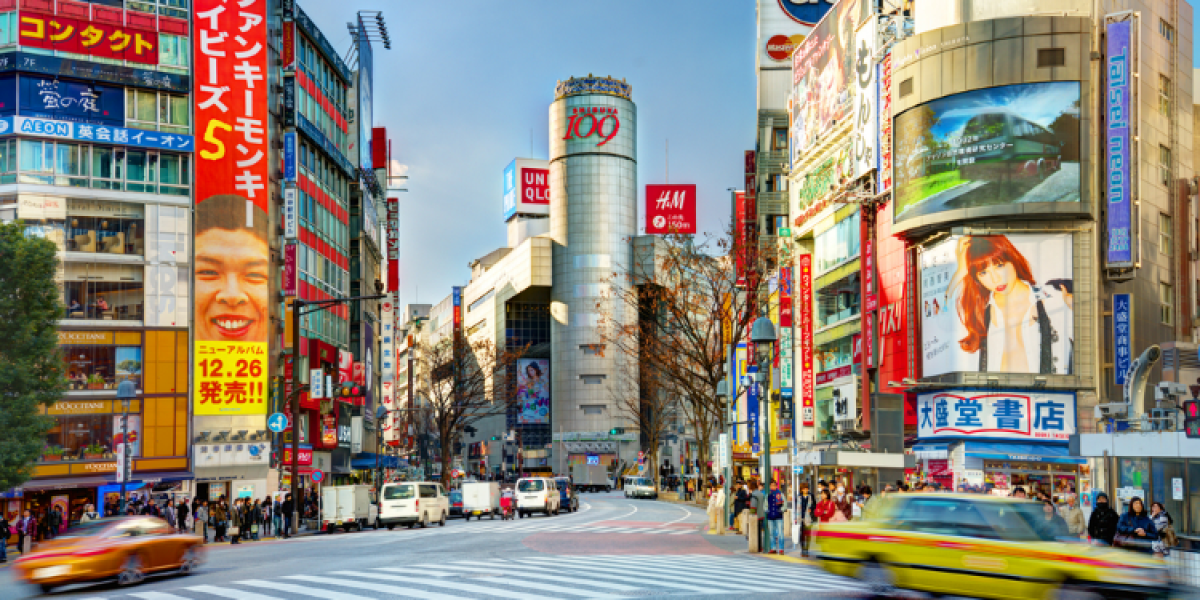
On Tuesday, May 31, Yoshihisa Furukawa, the Japanese Minister of Justice, announced the end of the temporary work permit for certain foreigners. This exceptional permission was introduced in 2020 to allow foreigners having work visa issues to work part-time.
Therefore, all foreigners concerned who had benefited from this special measure are required to return home. However, the country agreed to renew visas that are close to expiration so that these foreigners can leave safely. This measure questions the image of post-Covid Japan. Since 2020, the country has been losing its appeal with expatriates and people who were initially looking for a career boost.
A slow reopening
On Thursday, May 26, the Kishida government announced that Japan would reopen its borders to international tourists on June 10, and everyone believed it. After 2 years of complete closure, the country (one of the few still closed) is rebonding to international trade. But the euphoria is only short-lived. Japan opened its borders to nationals of 98 countries under strict conditions, including the obligation to travel in groups under the supervision of a guide, wearing masks indoors and outdoors, Covid testing before departure and on arrival, and three days of quarantine. However, travelers with a booster dose are exempted from the quarantine requirement. Japan is still in the trial phase of reopening internationally. The first step was the reopening of the borders to international students and increasing the number of people allowed to enter the territory from 10,000 to 20,000 since June 1.
Like the population, the government is still worried about the return of tourists. Some of them do not hesitate to post signs "prohibited to foreigners" in front of their businesses. Fortunately, they are not many. The government often tends to forget its contribution to the distorted vision of foreigners being those who carry the virus. This ambiguous anti-Covid policy left a bitter taste for many expatriates and even those who were planning a move there.
A controversial Covid management
In March 2020, Japan closed its borders like all other countries to prevent the spread of the virus. But the restrictions took another dimension in Japan. The country clearly set its boundaries with the rest of the world, excluding its own residents. Thousands of expatriates got stranded outside their host country. For example, many were stuck in France due to restrictions, while the borders with Japan had been restored for residents. While France seemed more lenient, Japan kept its stand. Expats complain about the way they have been treated. "I've lived in Japan for 20 years, and I was a fool to return to the United States in January. Excuse me, but I have a business to run. Today, I'm not even allowed to return home (well, I don't know if I still have the right to call it home!), although my Japanese colleagues are still allowed to roam the planet. It seems that the virus is only in foreigners", says an expat entrepreneur.
Thousands of expats are still stranded outside Japan. Others have no other choice than to stay in Japan due to fear of losing their visa. More than 100,000 people are concerned by such restrictions and have had no alternative for a long time. Add to this the number of people who haven't even been able to move due to work visas, study visas, internships, and Working Holiday Visas (WHV) cancelled. Many international students and interns had to settle for remote training and courses.
For those who are still stranded outside Japan (and they are quite many), life has turned upside down, and hopes have been shattered. They call this injustice, considering significant communication problems, a two-tier system, and discrimination. "Japan doesn't want us", although they believe that things could have been handled better. However, the situation is not likely to improve until September 1st. Residents are allowed to travel, but restrictions depend on new variants and contamination figures.
Why these measures penalize foreigners
According to Seiji Matano, a lawyer from the Immigration Services Agency, the principle is that anyone of non-Japanese nationality who leaves the country and stays in an area subject to the measures prohibiting entry into Japan will not be able to return there, even with a permanent resident status". He explained to international media that it's legally impossible to refuse entry to the territory to a Japanese citizen. However, discrimination against other nationalities is possible, and it looks like the government entirely assumes the responsibility of not granting the same rights to Japanese and foreigners. They do agree that the virus is not a nationality issue but continue their practices contrary to human rights. Although foreign embassies have been alerted, not much can be done.
Since the beginning of the crisis, some Japanese media kept associating "foreigners" with "Covid". In January 2021, the State chose to close its borders to non-resident foreigners for at least a month, although most of the new cases reported were Japanese. Faced with such discrimination, many foreigners have been suffering from anxiety and other more serious illnesses.
What's in the pipeline for expats in Japan?
In 2019, Japan had a record of 31.9 million international tourist arrivals. While a rise was expected in 2020, with tourism being one of the main economic pillars, the Covid pandemic changed it all. Unlike other economic powerhouses that quickly came up with a tourism emergency plan, such as the United Arab Emirates, Japan introduced the "GoTo Travel" strategy in July 2020. The program was intended for people living in Japan, granting reductions on travel. The role of this policy was to compensate for the absence of foreigners. However, with the Japanese borders being closed, GoTo Travel is technically open to the Japanese and not expatriates.
For tourists, these controversies are not an issue as their stay is only temporary. They see Japan as a hospitable country with beautiful landscapes. But for expatriates, the reality has been different since the beginning of the pandemic. Considering the significant demographic drop, the country is struggling to open up to broader immigration. Although the Japanese government has placed its bet on tourism to revive its economy, it failed to recognize foreign residents as part of its population. Japan seems to have lost its vision of a homogeneous country where diverse ethnicities have always interacted, and foreign residents were considered people who contribute to its development. What's worse is that expats who had to leave during the pandemic kept paying rent and taxes. Although expats are fully aware that they will always be considered foreigners, the Covid pandemic raised discrimination and many more issues that need to be addressed.



















